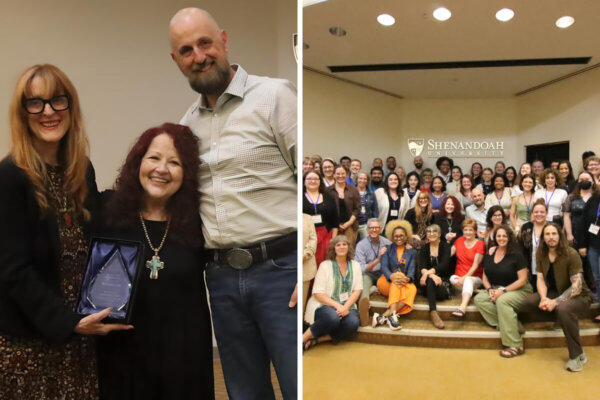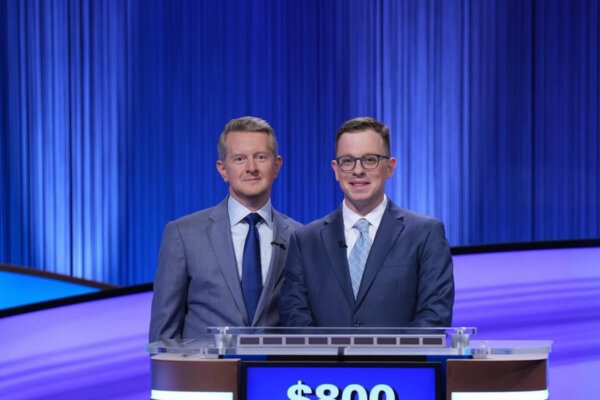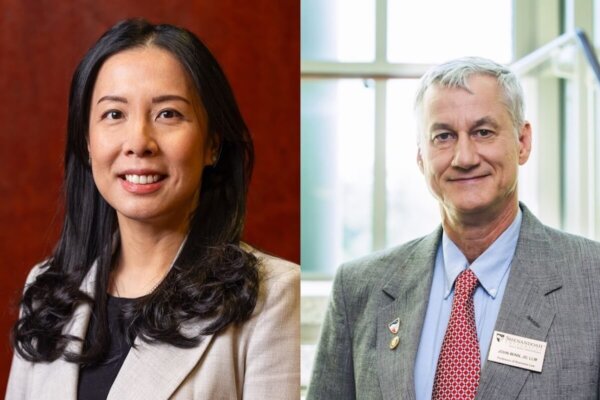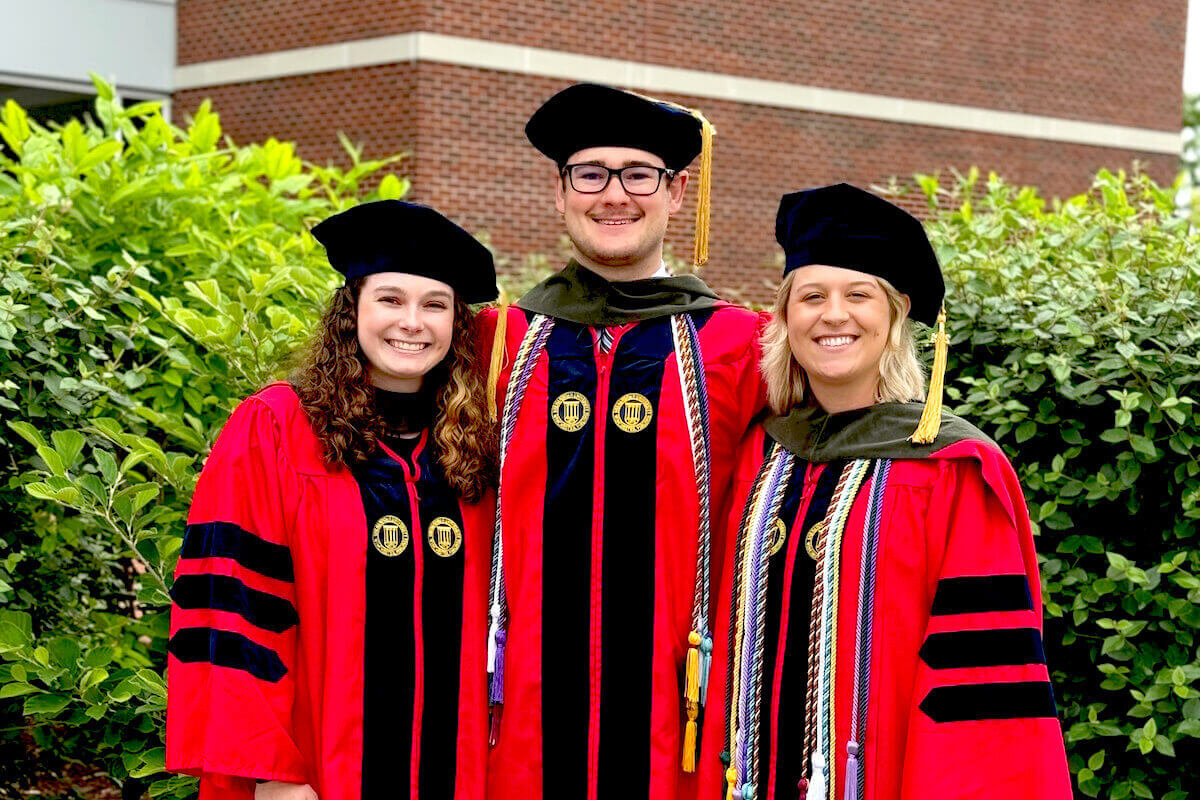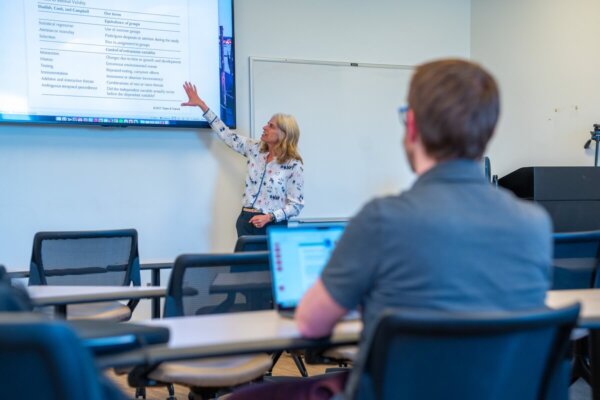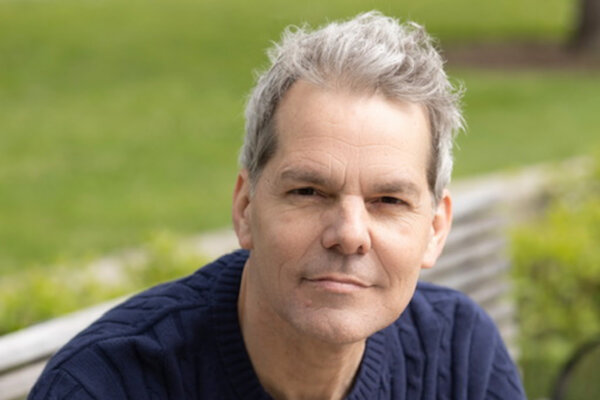Starting A Public Health Career During A Pandemic
Shenandoah’s Master of Public Health Program Provides Essential Skills And Lasting Support
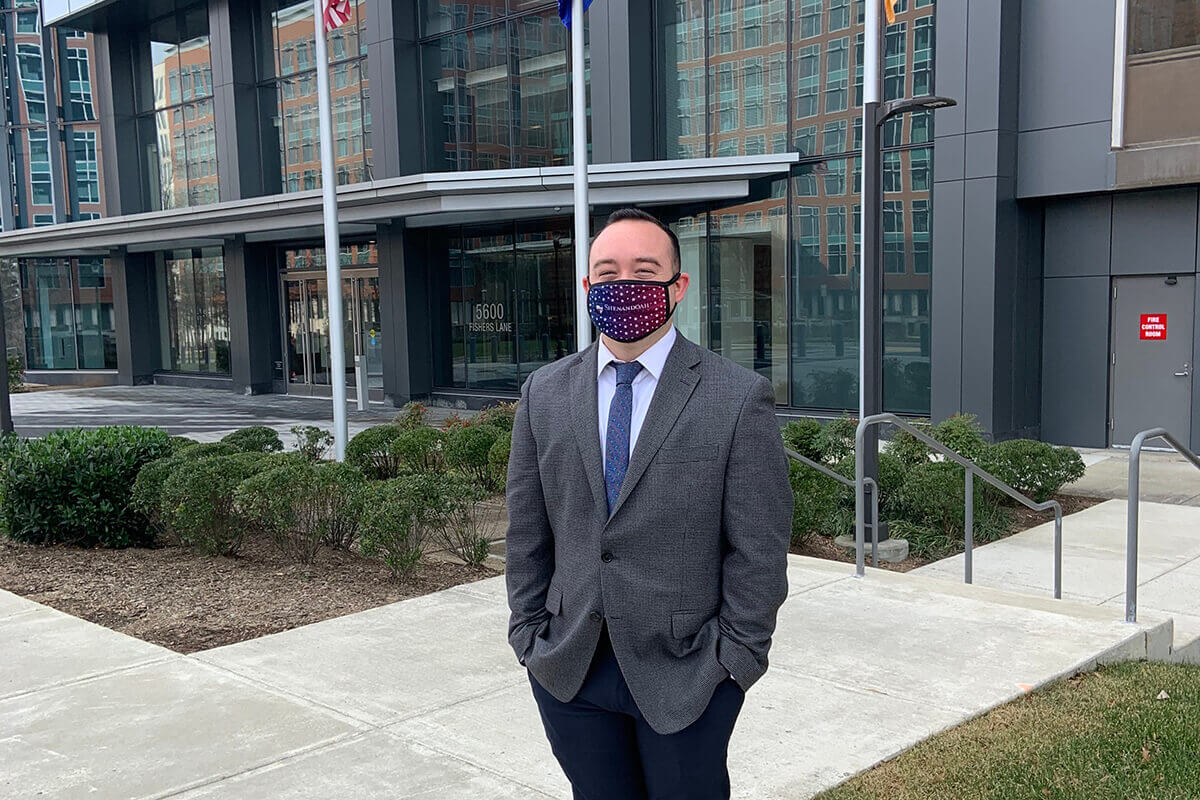
Shenandoah University alumnus Christian Lamoureux ’20, MPH, completed his graduate studies in public health and began his career in the field in the midst of the novel coronavirus pandemic.
As he studied in Shenandoah’s all-online Master of Public Health (MPH) program, he worked as a COVID-19 contact interviewer for Institute for Healthcare Improvement serving the Fairfax County Health Department, as a research associate with Men’s Health Network, and as a public health volunteer in the Virginia Medical Reserve Corps – Prince William Health District. He graduated from Shenandoah’s program in August 2020.
And then, to start 2021, he joined the U.S. Department of Health and Human Services (HHS), where he works as a public health advisor for its Assistant Secretary for Preparedness and Response in the Office of Emergency Management and Medical Operations (ASPR/EMMO) – Division of Recovery. There, he assists the regional coordinator’s response to issues like COVID-19, climate change, and equity in health services delivery when states, territories, and tribal nations request federal assistance.
Lamoureux, who earned an undergraduate degree in Health Services Administration in 2018 from James Madison University, said he had very specific reasons for pursuing an MPH.
The unique aspect of an MPH comes from the gained ability to problem-solve on a communal level with knowledge of systems on a broader scope. It was the coursework — specifically in program planning and implementation, health policy and management, principles of epidemiology, and social and behavioral aspects of public health — that made me understand I needed these tools if I wanted to contribute to addressing these difficult problems.”
It’s not surprising that Lamoureux chose a career in health care — his family is steeped in it, in one way or another. His father was a Navy Corpsman for 27 years and now works for the National Disaster Medical System of HHS. His sister is an occupational therapist, and his brother-in-law works in biodefense. “My academic passion for health program planning and services’ delivery, and experiences abroad made me pursue the mission of public health. These problems of accessibility, barriers to education, [Lamoureux’s late mother was a public school educator for more than 20 years] and equity transcend just our immediate locality – they occur globally. Being part of the solution regardless of scope made public health more enticing. Changing one life is rewarding, changing the systematic approach for all persons — that is a humbling privilege to be part of,” he said.
Shenandoah’s MPH program proved to be the perfect choice for him, particularly since he was working in information technology in Northern Virginia as he began his studies.
It was Shenandoah’s accessibility as an online program that made me feel that I didn’t need to sacrifice employment to be successful in accomplishing my goals academically. The program layout was set up for weekly success, always consistent in schedule, with the flexibility of not having to travel to and from Winchester, Virginia, during the week. It was exactly what I needed to have the best of both worlds.”
The program also includes three components he found critical to his career development as an early public health professional:
- portfolio development
- interprofessional collaboration
- international experiences
The MPH at SU carries a second-year requirement of portfolio development, allowing SU students to craft a showcase of their collective work during their academic tenure as a graduate student. The ability to highlight this is crucial to employers and helps establish the relationship between public health competencies and true, measurable experience by the student when applying to jobs.”
“Each semester, MPH students receive the opportunity to problem solve and case manage various health scenarios as a representative of the program through Interprofessional Education (IPE),” he added. “This critical-thinking exercise is unique and provides simulation of how interactions with other professions can be collaborative.
“Lastly, international experiences through Global Experiential Learning (GEL) are brief exposures offering insight on multicultural responses to global problems. I would encourage all MPH students to explore this option in their tenure at SU. The ability to contribute to solving these problems while supported by faculty and staff can not only broaden the vision one has for public health response, but also provide valuable application of skills learned in the classroom,” he said.
While Shenandoah’s MPH is all-online, it retains the close-knit character of the university’s classes, and builds strong faculty-student bonds, as is reflected in Lamoureux’s experience.
“[Shenandoah Director of Graduate Public Health Programs] Dr. Michelle Gamber and I did not know each other prior to my enrollment at Shenandoah University. However, we have remained great friends to this day,” Lamoureux said. “She is a wonderful resource of knowledge, caring about her students well beyond the classroom and graduation day. Whenever I have needed career advice or continuing education guidance, Dr. Gamber has always made herself accessible both as a student and now a peer in the arena. That is the level of customer service SU promotes, and she most assuredly delivers with mentorship and genuine care of success for her students.”
